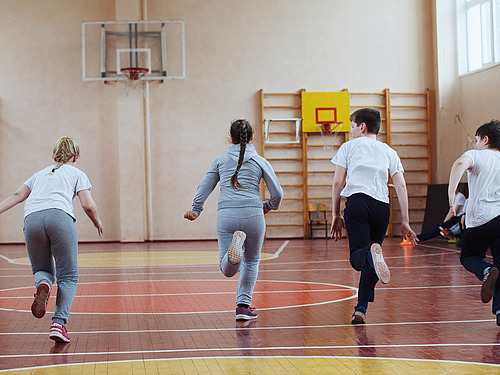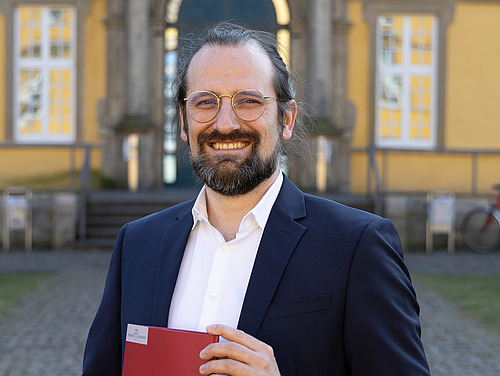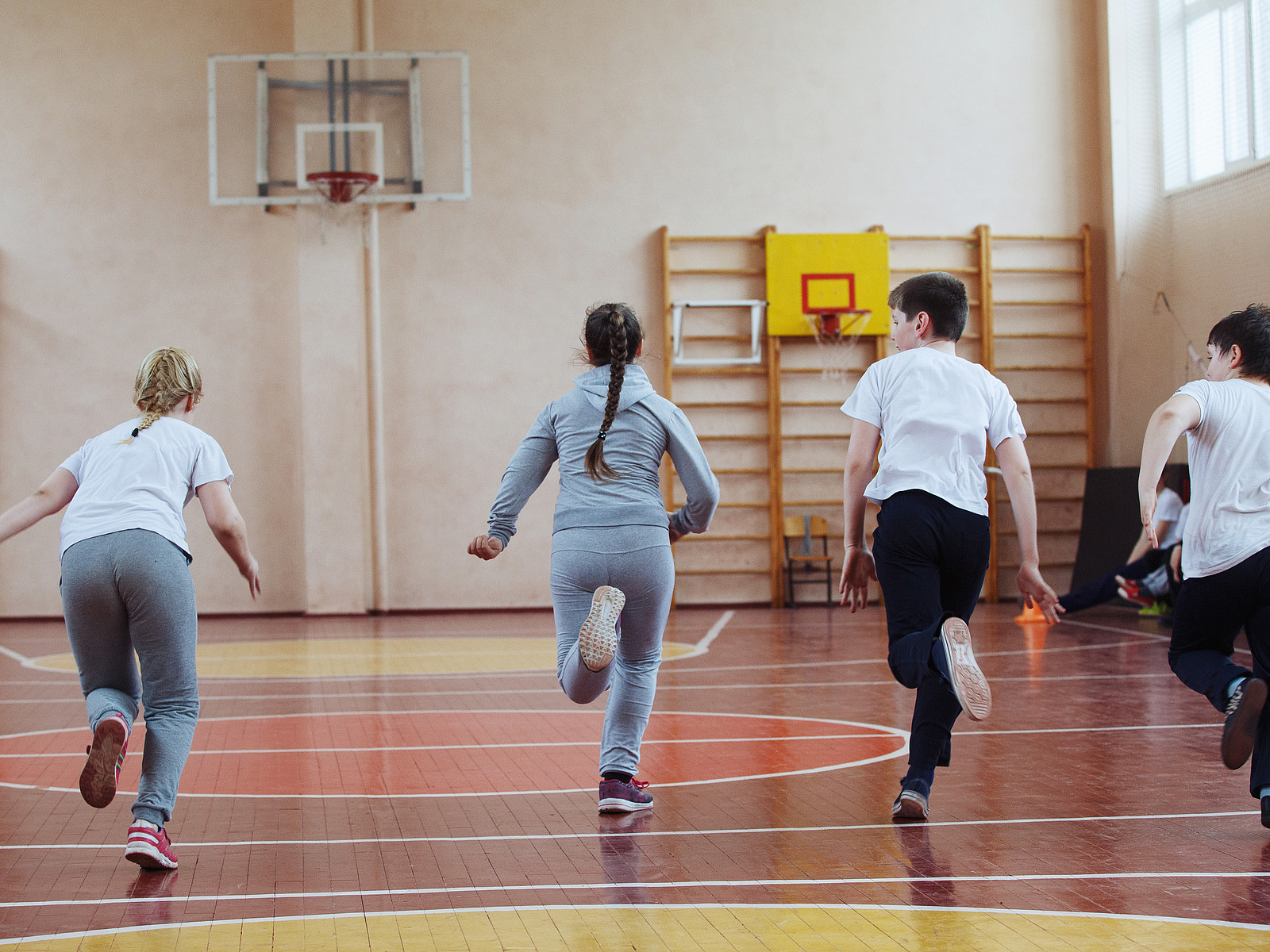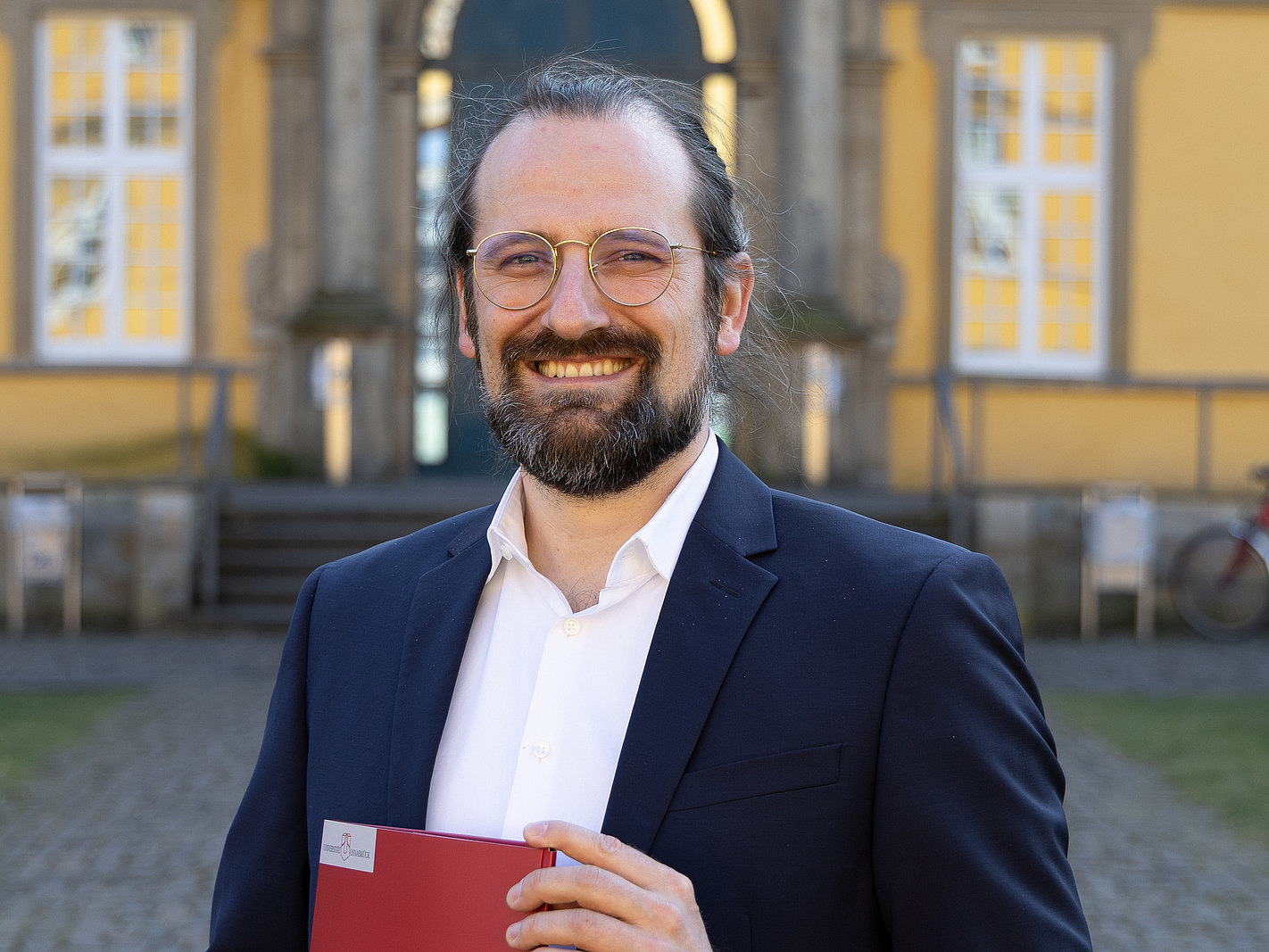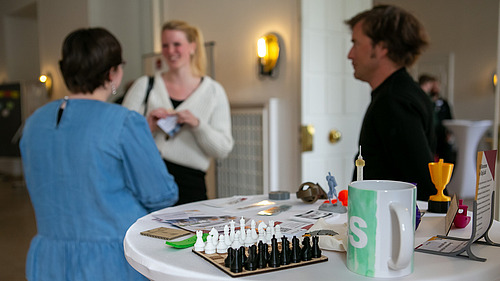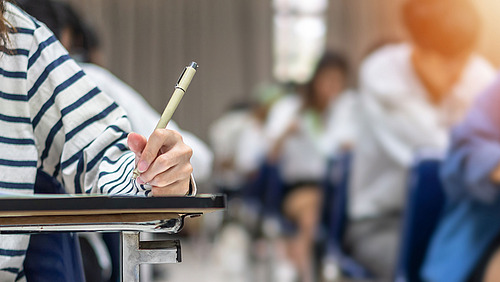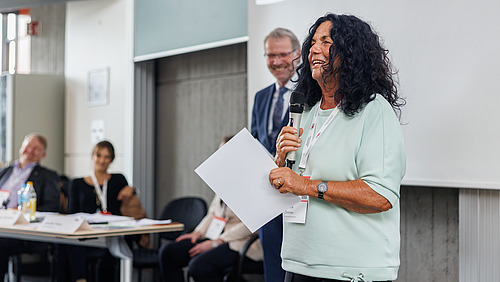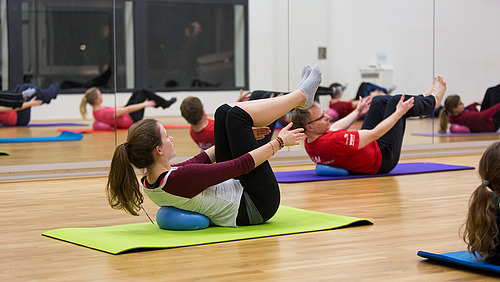Prof. Dr. Benjamin Zander has held the professorship of "Sports Science with a focus on Sport and Society" at Osnabrück University since this year. A conversation about the meaning of sports grades, feelings of shame in the changing room and the sports lessons of the future.
Prof. Zander, did you like PE lessons as a pupil?
Yes, definitely! That was also a key motivation for studying the subject.
What kind of sport did you do?
I played soccer, rowed, wrestled and did aikido, but I was also always outside a lot, went inline skating and skateboarding and spent a lot of time in nature. Where I grew up, near Dortmund, I had a typical street childhood and roamed the streets with a bunch of kids.
That sounds great! But can you also understand that many children don't like sports lessons at all and that adults often have unpleasant memories of them?
Yes, of course, and that often has to do with the school environment. The great thing about sport is that you can think very broadly and design it very individually. I go out and think: how long am I going to run today and where am I going to run? Physical education, on the other hand, is often a large-scale program where everyone has to do the same thing over a long period of time.
What's more, sport involves the whole body. And a body - despite all efforts - has its limitations, be it in terms of size or weight, which can only be influenced to a limited extent. It can affect pupils deeply when their bodies are suddenly made visible in this way. Some students therefore develop avoidance strategies.
Are they looking for excuses not to take part in PE lessons?
Yes, and there is a second component to this: sport is quite exaggerated in our society. Peers recognize it when someone is very sporty, and health insurance companies also promote sporting activities - it's hard to say: I have nothing more to do with sport. Physical education therefore needs to do more than just offer exercise: It must also create spaces for reflection and judgment so that children and young people learn, among other things, to critically classify the social significance of exercise, play and sport.
Physical education can be taken even further: swimming lessons! Here, the topic of shame reaches a whole new level - especially during puberty, when the whole body is undergoing changes. How can teachers allay pupils' fears?
The most important thing is to know: This is a very intimate interaction. Anyone who has grown up with club sports and knows about showering together may take it for granted. But sports teachers need to be able to empathize with pupils who have grown up with less freedom of movement. One approach could be to allow them to take towels into the swimming pool so that they can cover up outside the pool and to ensure that they spend long periods in the water, i.e. that they are not always in and out of the water. And the changing room situation should not simply be divided into a collective changing room for boys and one for girls, but should allow them to change in smaller groups of friends. I am also in favor of making sure that people who do not clearly identify with one gender are also given a space.
Anyone who discusses physical education quickly comes up with the Bundesjugendspiele or sports grades. Do you think that grades for sports lessons should be abolished?
Grades are not so much the problem - it's more the tone in which pupils are addressed. Without grades, I would be concerned that the subject could be devalued. The aim is to create access for pupils that motivates them to see sport as a resource for health and personal development, not only at school but also in everyday life and in the long term. And with reference to such objectives, assessment in physical education is indeed very complex. In practice, therefore, the performance aspects of "higher, faster, further" are often used, which are comparatively easy to measure. This makes it clear how challenging it is to meet the far-reaching demands of the curriculum.
How can we do better? What will physical education look like in the future?
I think that sport needs to be thought of much more broadly. We should keep an eye on standardized and canonized sports, partly because they have an important tradition and are sometimes considered cultural assets. However, if there is a stronger focus on free movement and play and at the same time pedagogical objectives in individualized learning settings come to the fore, then perhaps pupils will also see more meaning in the activities on offer and will be better able to develop themselves and be creative. In school and outside.
Personal details: After working at TU Dortmund University and the University of Göttingen, Prof. Dr. Benjamin Zander has held the professorship "Sports Science with a Focus on Sport and Society" at Osnabrück University since 15 March 2025. The topic of his habilitation thesis was "Sport in the transition from childhood to adolescence. Empirical contributions to peer research in school and leisure"
About the series: In the interview series "UOS asks questions", experts from Osnabrück University talk to the press office about current, everyday and much-discussed topics. From politics to education, from art to AI - UOS asks questions.
Further information for the media:
Prof. Dr. Benjamin Zander, Osnabrück University
Institute of Sport and Exercise Science
E-mail: benjamin.zander@uni-osnabrueck.de
